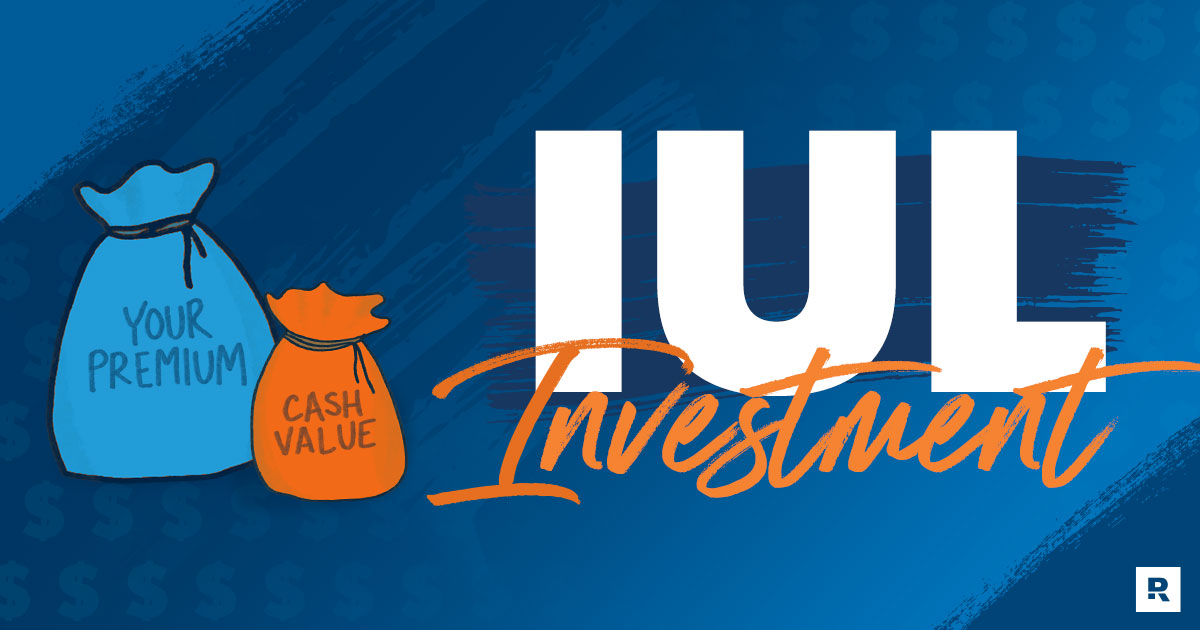All Categories
Featured
Table of Contents
1), typically in an attempt to defeat their group standards. This is a straw male disagreement, and one IUL people enjoy to make. Do they compare the IUL to something like the Vanguard Overall Securities Market Fund Admiral Show no lots, an expense ratio (ER) of 5 basis factors, a turn over ratio of 4.3%, and an outstanding tax-efficient document of circulations? No, they compare it to some terrible proactively taken care of fund with an 8% tons, a 2% EMERGENCY ROOM, an 80% turn over proportion, and an awful record of temporary funding gain distributions.
Mutual funds frequently make yearly taxed distributions to fund proprietors, also when the value of their fund has decreased in value. Common funds not just need earnings reporting (and the resulting yearly tax) when the common fund is rising in value, yet can also enforce earnings taxes in a year when the fund has dropped in value.
You can tax-manage the fund, harvesting losses and gains in order to lessen taxable distributions to the capitalists, but that isn't in some way going to change the reported return of the fund. The ownership of mutual funds may call for the mutual fund proprietor to pay projected taxes (national life iul).

IULs are simple to place so that, at the owner's fatality, the beneficiary is exempt to either earnings or estate taxes. The very same tax obligation decrease strategies do not work virtually also with shared funds. There are various, frequently expensive, tax obligation traps connected with the moment acquiring and marketing of common fund shares, catches that do not put on indexed life insurance policy.
Opportunities aren't really high that you're mosting likely to be subject to the AMT due to your shared fund circulations if you aren't without them. The remainder of this one is half-truths at best. For example, while it is real that there is no revenue tax because of your successors when they acquire the profits of your IUL policy, it is also true that there is no revenue tax obligation as a result of your successors when they acquire a common fund in a taxed account from you.
Ffiul Insurance
The federal inheritance tax exemption limitation is over $10 Million for a pair, and growing every year with rising cost of living. It's a non-issue for the vast bulk of medical professionals, much less the rest of America. There are better methods to avoid estate tax concerns than purchasing investments with reduced returns. Mutual funds may cause earnings taxes of Social Safety and security benefits.
The development within the IUL is tax-deferred and might be taken as tax obligation free earnings via lendings. The policy proprietor (vs. the shared fund supervisor) is in control of his/her reportable revenue, therefore enabling them to minimize or even get rid of the taxes of their Social Security advantages. This set is great.
Below's another very little issue. It holds true if you acquire a shared fund for say $10 per share right before the distribution date, and it disperses a $0.50 distribution, you are after that mosting likely to owe tax obligations (possibly 7-10 cents per share) although that you haven't yet had any gains.
In the end, it's really regarding the after-tax return, not just how much you pay in tax obligations. You're likewise most likely going to have even more cash after paying those taxes. The record-keeping demands for owning shared funds are significantly more complicated.
With an IUL, one's records are kept by the insurance provider, copies of yearly statements are sent by mail to the owner, and distributions (if any) are totaled and reported at year end. This one is additionally kind of silly. Obviously you need to keep your tax obligation records in situation of an audit.
Single Premium Indexed Universal Life
All you need to do is push the paper right into your tax obligation folder when it shows up in the mail. Barely a reason to acquire life insurance policy. It's like this guy has never purchased a taxable account or something. Shared funds are generally part of a decedent's probated estate.
Furthermore, they undergo the delays and costs of probate. The profits of the IUL policy, on the various other hand, is constantly a non-probate circulation that passes beyond probate directly to one's named recipients, and is for that reason not subject to one's posthumous lenders, unwanted public disclosure, or similar hold-ups and prices.
We covered this one under # 7, however just to recap, if you have a taxed mutual fund account, you should put it in a revocable count on (or also much easier, use the Transfer on Death designation) in order to prevent probate. Medicaid incompetency and life time income. An IUL can give their proprietors with a stream of revenue for their entire life time, despite how long they live.

This is valuable when arranging one's affairs, and transforming properties to revenue prior to a retirement home confinement. Mutual funds can not be converted in a comparable way, and are often taken into consideration countable Medicaid properties. This is an additional dumb one advocating that poor people (you know, the ones who need Medicaid, a federal government program for the inadequate, to spend for their retirement home) need to use IUL rather of mutual funds.
What Is Better Term Or Universal Life Insurance
And life insurance looks terrible when contrasted rather versus a retired life account. Second, individuals that have money to get IUL over and beyond their pension are going to have to be horrible at managing money in order to ever receive Medicaid to spend for their retirement home costs.
Chronic and terminal disease motorcyclist. All policies will allow an owner's easy accessibility to money from their policy, frequently waiving any type of surrender penalties when such people experience a major disease, need at-home treatment, or become constrained to a retirement home. Shared funds do not offer a similar waiver when contingent deferred sales fees still use to a mutual fund account whose owner requires to market some shares to fund the prices of such a stay.
Life Insurance Surrender Cost Index
You obtain to pay even more for that benefit (rider) with an insurance policy. What a wonderful deal! Indexed universal life insurance offers survivor benefit to the beneficiaries of the IUL proprietors, and neither the owner neither the recipient can ever before lose money due to a down market. Shared funds provide no such warranties or survivor benefit of any kind of kind.
I definitely do not need one after I reach financial self-reliance. Do I want one? On standard, a purchaser of life insurance policy pays for the true price of the life insurance coverage advantage, plus the costs of the plan, plus the earnings of the insurance firm.
Universal Life Online
I'm not totally sure why Mr. Morais threw in the entire "you can't lose money" once again right here as it was covered rather well in # 1. He simply intended to duplicate the best selling point for these things I suppose. Again, you don't shed nominal bucks, yet you can shed genuine dollars, as well as face serious possibility expense as a result of low returns.

An indexed universal life insurance policy plan owner may trade their plan for a totally different plan without setting off revenue tax obligations. A common fund owner can not relocate funds from one shared fund business to one more without marketing his shares at the previous (thus causing a taxable event), and buying brand-new shares at the last, usually based on sales costs at both.
While it holds true that you can trade one insurance coverage plan for another, the reason that people do this is that the initial one is such a dreadful plan that even after buying a new one and going through the early, unfavorable return years, you'll still appear ahead. If they were marketed the appropriate plan the first time, they should not have any need to ever before trade it and go through the early, adverse return years once again.
Latest Posts
Universal Insurance Payment
Universal Vs Term Insurance
Is An Iul A Good Investment